THE INVENTOR
Alaa Abdulraheem is the founder and GM of Butterfly Technology. Her mission is making inventors’ dreams a reality.
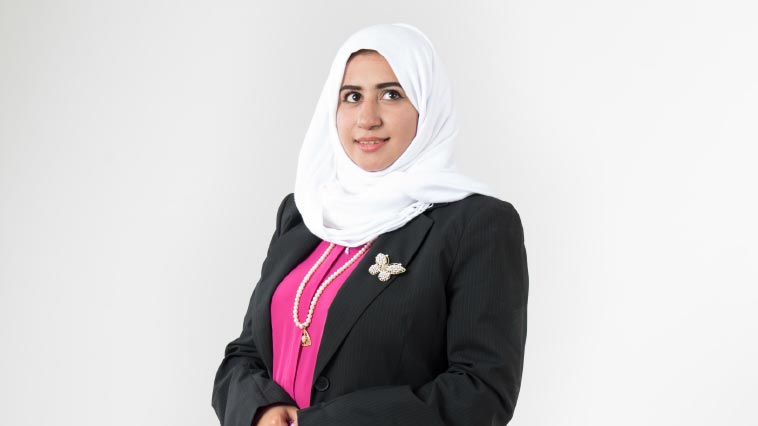 Briefly, what does Butterfly Technology do?
Briefly, what does Butterfly Technology do?
Butterfly Technology is a Bahraini company that specialises in manufacturing new innovative technological ideas that are not available in the market yet and developing software applications. In addition, the company incubates fresh innovative ideas and provides full technical support which includes consultation, support in the planning, implementation and providing guidance throughout the process. Add to that, supporting creative minds with opportunities such as attending competitions, exhibitions and more. What we do:
– Manufacturing innovative products
– Turning ideas to inventions
– Building invention prototypes
-Doing scientific researches and studies
-Consultations
-Training and courses
-Events and speeches
How did you become involved in the technology sector?
I have loved science and technology since I was a kid. My parents did science projects with us at home. Then they registered me at the Science Center when I was in primary school. I started taking courses in Science and programming, attending scientific affairs and conferences in and out of Bahrain and planning and managing scientific events. When I graduated [high school], I got a scholarship in computer engineering at the University of Bahrain. And, for my graduation project, I decided to do something new – something that did not exist, something for ladies and something useful for the public. So, I invented a machine that can [mix and] produce any colour of nail polish in less than 60 seconds, controlled by a mobile App to allow the user to choose the colour and the type of mixer. This machine won the Best Graduation Project Award in the college. Moreover, it won first place in a Microsoft competition locally, first place in the pan-Arab semi-final of the same competition and third place globally – Bahrain was the first Arab country to win a prize since the competition started in 2003. There were also many other global awards.
Because of all the hard work, I received the Efficacy Honour from His Majesty King Hamad bin Isa Al Khalifa on Bahrain National Day that year.
After graduation, I decided to start a Bahraini company, Butterfly Technology, that turns great ideas into inventions and then to final products that are ‘made in Bahrain’. Also, we help anyone who has an idea offering courses and consultation sessions to teach people and students how to develop their own inventions.
What is the biggest challenge you have faced and how did you overcome it?
Well, in each phase there are many challenges. For example, the first challenge I had was in building a full invention by myself, learning how to do it, searching for the necessary components et cetera. Then, after graduation, the financial challenge came to find capital for my business. Actually, the challenges never stop, they become bigger and bigger. But this is how you jump to the next level in your game.
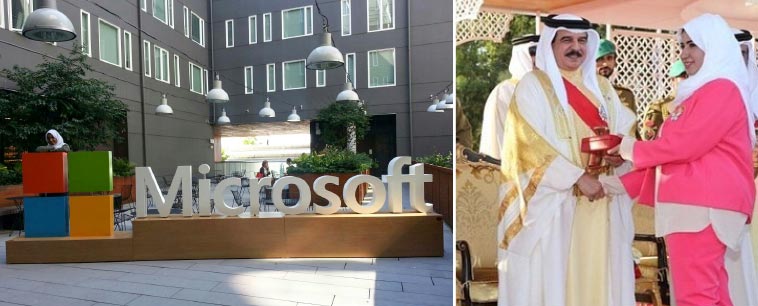 What’s your proudest achievement to date?
What’s your proudest achievement to date?
Definitely receiving the Efficacy Honour from HM King Hamad bin Isa Al Khalifa.
Any advice for other women interested in joining the industry?
If you have a dream, go and fight for it. Set out a plan with small steps to reach it and never stop trying. I know it is not an easy path, but achieving your dream is worth it!
THE G-WHIZ
Lana Al-Attar is the founder of digital agency Gudjuju.com and also founder and lead of Google Developer Group (GDG) Manama.
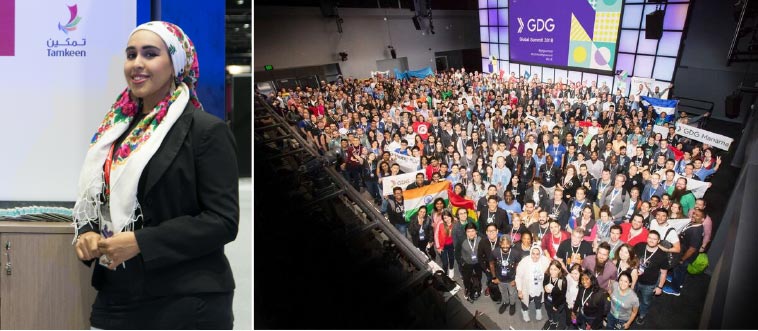 Please give us a little bit of your own tech background. How did you get started and how does tech help in your daily business life?
Please give us a little bit of your own tech background. How did you get started and how does tech help in your daily business life?
I have a BSc. in computer science which I got at the age of 19; I got into university at 16. Interestingly enough, I don’t use much of anything I learned in university and all my success in both Gudjuju.com and GDG Manama I owe to YouTube tutorials and online courses. Technology in this century needs to be human-centric, its role is to enhance and assist humans and not replace them altogether. This helps with efficiency, better economy and ultimately makes more time for deeper offline human connections and wonderful online experiences. We craft these every day at my digital agency.
What led you to establish the GDG Manama?
GDG stands for Google Developers Groups and is a platform offered by Google Developers to support community-run developer groups. The programme was brought to my attention by StartUp Bahrain – I applied online and went through an application and interview process with the Google Developers Groups regional lead. There was so much synergy and many things we saw eye to eye on. What I love about GDG Manama is that it is easily one of the few groups that are not afraid of teaching ALL technologies and not just Google technologies. Also, the community, support and access to resources we get is amazing. We even had the honour of going to Google IO last year and this year, where we got to experience all the new technologies first-hand!
Currently we have over 1,600 members, and, in just over a year we have trained over 3,000 attendees on various topics such as web, mobile, blockchain, data science, nano tech, devops, security, iot, machine learning, self-driving cars, cloud and digital marketing.
How long has the group been running and how does it work?
The group has been running now for a little over a year, it’s free and open to everyone. We have attendees from 12 years to 60-plus, from all backgrounds. We list the workshops on Meetup, you just register on Meetup.com/GDG-Manama and attend the topics you like. So far, all our events are for free and even the pizza is on us!
What has been the reaction in Bahrain?
Phenomenal. Many people have learned many skills, some have won hackathons as a direct result of our training. Some have opened businesses and some even got career promotions as a result of the networking and new skills they’ve acquired. This is made possible because GDG Manama is a safe place for all backgrounds and all diversities to come and learn. We make that clear and try to be as approachable as possible. Most of our sessions have hands-on training for all different levels – we do our best to make it as easy as possible for someone to get started.
Do you find the membership has more of one gender than the other, or is it pretty equal?
When we started it was very male dominated, but month after month that has changed, to the extent we had a new member say: “I thought this was a tech event, how come there are so many women?” That made my day.
Do you think the group can help encourage more women into the tech arena and specifically the development side?
Bahrain already has many women developers graduating universities, it’s about giving them the platform to show what they can do and welcoming them to join an active tech community.
How do you see the group progressing into the future?
This year we will be releasing session tracks for each subject, if you are interested in mobile development or Artificial Intelligence, you now will have more sessions arranged in tracks that you can attend.
THE AR/VR SPECIALIST
Dr Sana Farid is a pioneer ARVR (augmented reality/virtual reality) strategist in the MENA region, and the co-founder and CEO of Munfarid, a MENA-based innovation firm focusing on immersive technologies and the fourth industrial revolution. She’s also a surgeon, qualified from the RCSI Bahrain.
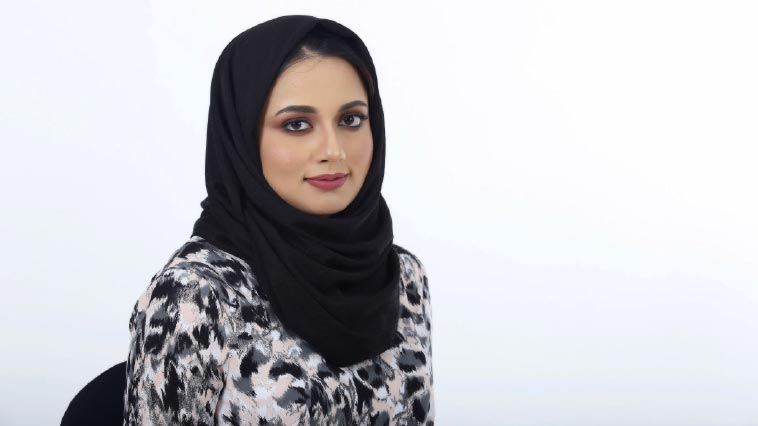 Dr Sana is currently serving as co-president for VRARA Association MENA region, the world’s largest community of innovators and experts working on VR/AR and Artificial Intelligence (AI).
Dr Sana is currently serving as co-president for VRARA Association MENA region, the world’s largest community of innovators and experts working on VR/AR and Artificial Intelligence (AI).
How did you go from being a qualified general surgeon to the field of VR and AI?
Entering a professional career in medicine, I realised that this field requires extensive training, a lot of practise and proficiency to interact with patients.
I soon understood that we, as a society on the whole, need to go further than implementing what is already known.
The medical profession is life-changing; we welcome our patients and devote our energies to create a healthier society. I wished to discover potential methodologies that seemed promising to improve the training and development. Immersive learning was a technology that instantly interested me.
I learned how AR and VR could improve the retention rates, enable better engagement, provide more chances for practice in safe environments.
As a medical intern or fresh graduate, immersive environments increase confidence by [allowing] working in the virtual field with virtual bodies.
I kept researching, in a quest for more pragmatic solutions, interrogating the scope of XR [cross reality]. It turned out, that it could reduce the nervousness of confronting real patients, an inevitable phase during the training.
Through my experience of the field, I yearn to enhance the training system, education and practices in XR.
What is the idea behind Munfarid, and how long did it take to reach where you are now?
Munfarid is a notion of dedicated endeavor, passion to empower and disrupt through intelligence.
Technology has brought us closer and helped us perform tedious tasks smoothly. The idea behind Munfarid was to reach even beyond physical limitations; to make learning more productive. Learning is precisely empowering and igniting others to reach and help more people.
Munfarid envisions to prepare tomorrow’s generation to be work-ready, enabling them to reach the developing nations and rise as a community.
We take pride in running the biggest immersive learning programme across the region. ARVR has been instrumental in advancing the educational and medical field and has helped bring a positive change in the lives of many.
In our journey, we work closely with several governments to strategise innovation programmes and conduct multiple impact programmes in developing countries catering to the most sensitive issues such as infant resuscitation and nonformal education. We look forward to helping as many people as possible, empowering them to live the life of their dreams.
What do you see as the future of this and any coming technology in both education and the realm of wider daily life?
Industrial revolutions revamp the way things work. With the inception of immersive technologies aiding the fourth industrial revolution, today, healthcare professionals are able to help patients with better treatment outcomes during painful and/or anxious situations. This approach enables them to improve the overall patient experience and better quality of life.
In the education sector, immersive learning tools are proven to increase engagement to 100 per cent, improve knowledge retention to 90 per cent and results to 86 per cent, ARVR has enabled learners to bring lessons to life and learn-by-doing.
As a woman, did you face any gender-specific challenges?
On the contrary, being a woman is a privilege in our country. The government has initiated several programmes to increase women‘s economic participation through small businesses. The Bahrain Development Bank offers both microcredit and larger loans, with 73 per cent of beneficiaries being women.
In the educational sector, Bahraini women constituted 72 per cent of students enrolled at the Arabian Gulf University and 67 per cent of those enrolled at the University of Bahrain; the two largest post-secondary education institutions in Bahrain.
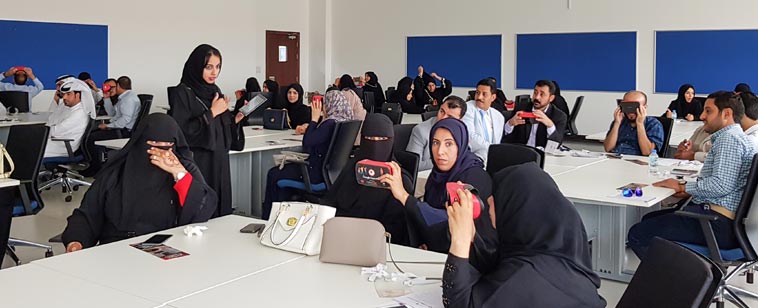 Bahrain has an excellent ecosystem for start-ups. We have substantial government support, significant events and meet-ups happening everywhere. In fact, leading organisations such as Tamkeen provide assistance and training to private-sector businesses and individuals. In addition we have an active Economic Development Board that encourages investment in Bahrain, thus extending support, collaboration and growth opportunities for innovative ideas. Such initiatives help us grow the businesses, boost entrepreneurs’ morale and encourage them to ideate creatively.
Bahrain has an excellent ecosystem for start-ups. We have substantial government support, significant events and meet-ups happening everywhere. In fact, leading organisations such as Tamkeen provide assistance and training to private-sector businesses and individuals. In addition we have an active Economic Development Board that encourages investment in Bahrain, thus extending support, collaboration and growth opportunities for innovative ideas. Such initiatives help us grow the businesses, boost entrepreneurs’ morale and encourage them to ideate creatively.
This is In line with HRH Princess Sabeeka bint Ibrahim Al-Khalifa’s vision, we —the Bahraini women— are proud to lead on many fronts, both explored and unexplored.


































